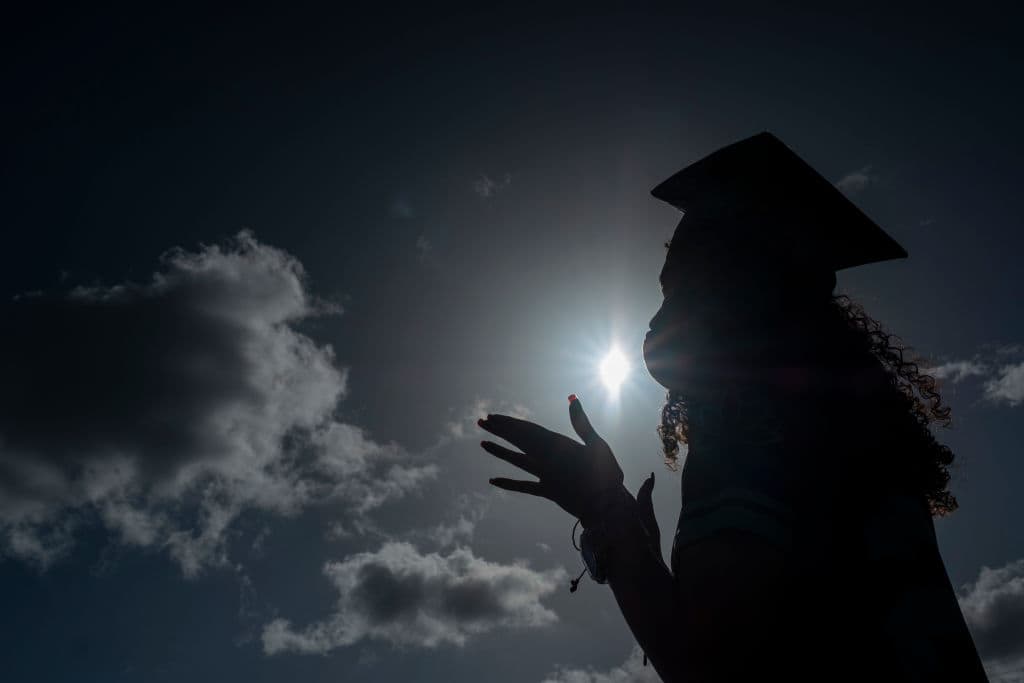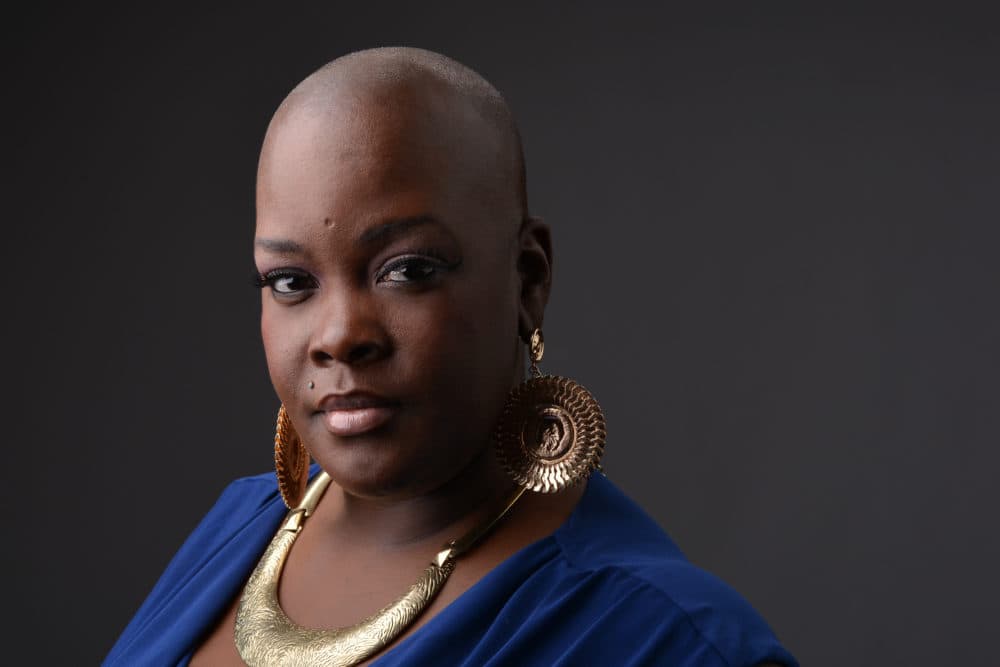Advertisement
Poet Sonya Renee Taylor's Words Of Wisdom For The Class Of 2020
Resume
Commencement speeches this year have taken on additional weight as graduates — and many others — try to imagine what the future holds.
In this time of uncertainty, many are looking for words of wisdom to help guide us post-pandemic.
Poet and author Sonya Renee Taylor is no stranger to commencement speeches. She's given many of them over the years, and this year, she's doing it again — virtually from her home in New Zealand.
She says her final message for the class of 2020 is that there are no experts on living.
“I think we want to know it all. There's a comfort in having the answers and feeling like we've got it all figured out,” Taylor says. “And I think once we give ourselves permission to not be experts, to not have it all figured out, to just be part of this wild ride, of being a human alive on this planet, I think there's great freedom in that.”
While people don’t have everything figured out, Taylor says she wants graduates to take comfort in the fact that we do have some answers to guide us through life, especially this period of uncertainty.
“Those answers live in what already connects us, what already brings us joy, what already is creating a sense of possibility and connection and love in our lives,” she says. “And that if we can look toward those things, that's what the future that we're trying to bring about is going to be made of, and that's the one that's gonna be rich and powerful.”

Interview Highlights
On what she wants graduates to focus on
“No, we don't know what the job market is going to look like. No, we don't know what colleges are going to look like. But we do know what is helping us survive in this moment because it's in the midst of such chaos that we really can tangibly see that which sparks aliveness in us, and that if we can stay focused on that, that's actually what's going to clear up the things that feel uncertain going forward.”
“I think what we called ‘normal’ was not normal at all."
Sonya Renee Taylor
On how graduates can come to terms with fear while also being hopeful about the future
“I think it's one of those really complex realities of humanity is that there is always both. It's never either-or. And I think one of the illusions that we tell ourselves is like, 'Bad things happen or good things happen.' And the truth of the matter is that good and bad things are constantly and always happening. I heard someone say the other day, you know, ‘In this time of great fear,’ and I thought to myself, 'There's always been great fear.' We are not experiencing something new. We just happen to be seeing it more clearly. And I think that part of that is the gifts of technology today.
“When the Spanish flu happened, nobody could tweet about it. No one was able to tell, you know, people couldn't hop on Zoom and say we're having a collective experience. And so it's not that we are just starting to have a collective experience. It's just that we have the technology to know that we are. And so we're seeing what has always been true, which is that the deep grief and sorrow of life has always lived alongside the grand joy and possibility of life. And if we can just be with the duality of that and grieve when it is time to grieve but not believe that it is indefinite, and then joy when it's time to joy, but also recognize that that, too, is transient and will change.”
On what’s wrong with this idea of returning to normal
“I think what we called ‘normal’ was not normal at all. It was actually really about disconnection and about fear and about externalized value. When I think about people protesting on state capital steps for the right to return to work or not wear face masks, what I really see are people who are deeply afraid that the way in which they have historically known themselves as valuable is being shifted. That if all of my worth has been assigned to what I do every day, to my job, to my normal quote unquote way of life, when that changes, who am I?
“And what a terrifying place to be if we haven't situated our sense of self-worth really on the sort of solid ground of our internal selves. And so going back to normal means going back to a world where we externally define our worth, where we have a lot of separation and divisiveness, where we see a lot of inequity and oppression, where we see a lot of danger and destruction to our society and to our natural world. I don't think we need to go back to that. I think we are getting a chance to say, 'What can we do differently that both affirms who we are, our inherent value, and also affirms the world that we live in? How do we sustain both of those things?' ”
“Here's the scary thing: We have nothing but the opportunity to reinvent ourselves. The moving away from what we knew and felt comfortable — again back to this idea of we really like knowing, and it's the not knowing that's so terrifying. But if we can lean into that not knowing and access what is my heart's real desire? Because right now, if that job is leaving, it's gonna leave. And so if you have nothing but space and possibility, which is difficult to access when we're also in fear. But if we're saying, 'This space is open right now,' then we also are saying, 'I have some choice about what I would like to see put in it.' We are at a tough time, but I believe that it's possible to really activate what I like to call our liberatory imaginations to what it is that will deeply bring us joy.”
On the idea of radical self-love
“What I like to remind people is that radical self-love is not a place you have to get to. You came here already in love with yourself. You have never seen a self-loathing toddler in all your days. They arrive on the planet as love. That way we arrived and where we are today is the work, is the thing to dismantle. What are the messages in stories I told myself and that others have told me and that society has told me that has me think that I am not already [in] radical self-love? And as we begin to peel back those stories, what begins to rise is who we inherently are. It's the great time of excavation.
“In this particular moment, what do we deeply want to see come about in our own lives? And what do we deeply want to see come about in the world? It's the time to ask big questions and be gentle and gracious with answers that come to us, and really think about who is it that I am inherently and what is in the way of me living the fullness of that in my life? I think we have the chance to do that right now.”
Cristina Kim produced and edited this interview for broadcast with Tinku Ray. Samantha Raphelson adapted it for the web.
This segment aired on May 22, 2020.
